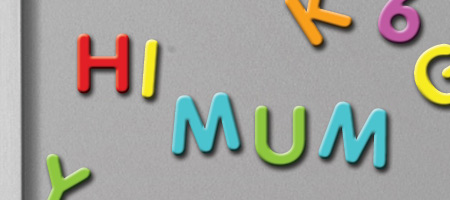Development Milestones
Some of the most notable milestones in baby's development and when to expect them.

Having a baby and watching him or her grow brings on a seemingly endless stream of developmental milestones.
Starting as early as just one month old, you will notice changes in your baby, with many new behaviours starting to emerge. Below are some of the most notable milestones and when to expect them.
One month: lifts the head, stares at faces, and responds to sounds.
Two months: cooing and gurgling may begin, objects are followed, and holds the head up for short periods of time.
Three months: laughing may begin, recognizes your face, and holds head steady.
Four months: weight can be beared on the legs, cooing happens when you speak.
Five months: playing with hands and feet seems to amuse them, bold colours can be distinguished, and they can roll over.
Six months: rolling in both directions is mastered, sounds are imitated, bubbles are blown, and they turn toward voices and sounds.
Seven months: can sit without being supported, babbling is well underway, and they may start reaching for objects by using a sweeping motion.
Eight months: objects are now being passed from hand to hand, "mama" and "dada" are said without being specific, and crawling starts.
Nine months: he or she can stand while holding onto a firm surface, syllables start to be combined into sounds that are word-like.
Ten months: crawling is mastered, cruising begins, objects are picked up with a pincer grasp, and he or she starts waving bye-bye.
Eleven months: the game of patty cake is mastered, "mama" and "dada" are said to the correct parent, and he or she is able to stand alone for a couple of seconds.
Twelve months: word-like sounds are jabbered, activities are mimicked, and wants are shown by the use of gestures.
Thirteen months: standing alone is mastered, easily bends over to pick up objects, other words are used correctly such as "hi" and "bye".
Fourteen months: the actions of others are imitated, the contents of containers are emptied, and he or she is feeding themselves with their fingers.
Fifteen months: walking backwards begins, he or she can play with a ball, and vocabulary increases to up to five words.
Sixteen months: starts to show attachments with a toy or an object, can turn the pages of a book, and temper tantrums begin when the child becomes frustrated.
Seventeen months: he or she starts to enjoy riding on toys, pretend games begin, and a handful of words are used often.
Eighteen months: scribbling begins, will sit and "read" board books without assistance, and can pedal a tricycle.
Nineteen months: running begins, starts using a fork and spoon, a ball can be thrown using an underarm pitch.
Twenty months: will imitate an action such as throwing something in the bin, can remove clothes with a bit of help, and will pretend to feed a toy.
Twenty one months: can walk up stairs, will set simple goals such as putting a toy in a certain spot, and helps around the house.
Twenty two months: can follow simple two part requests such as go get your toy and put it away, and can kick a ball in a forward direction.
Twenty three months: can name a simple picture when shown, can build a tower of up to four blocks, and can use up to fifty simple words.
Twenty four months: can start to put together short sentences, can name up to six body parts, and about half of their speech can be understood.
While these milestones are typically seen at the times mentioned above, you should not worry if your child does not hit every mark exactly. Every child is different, and each child will develop at his or her own personal pace.
For further information and tips on looking after your baby at all stages, please visit Everymum's Baby Section.
